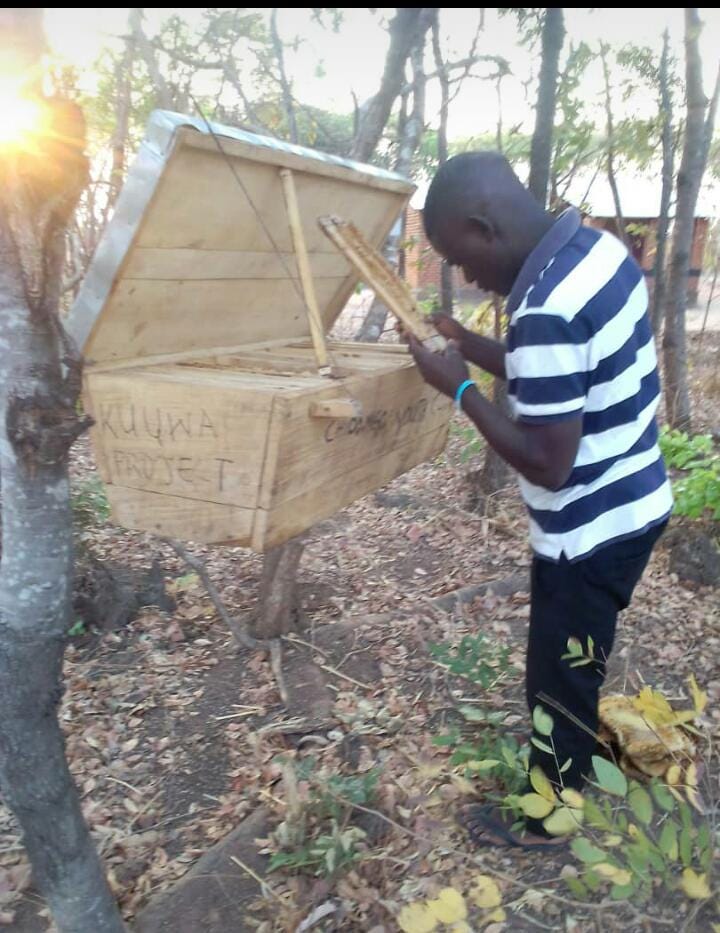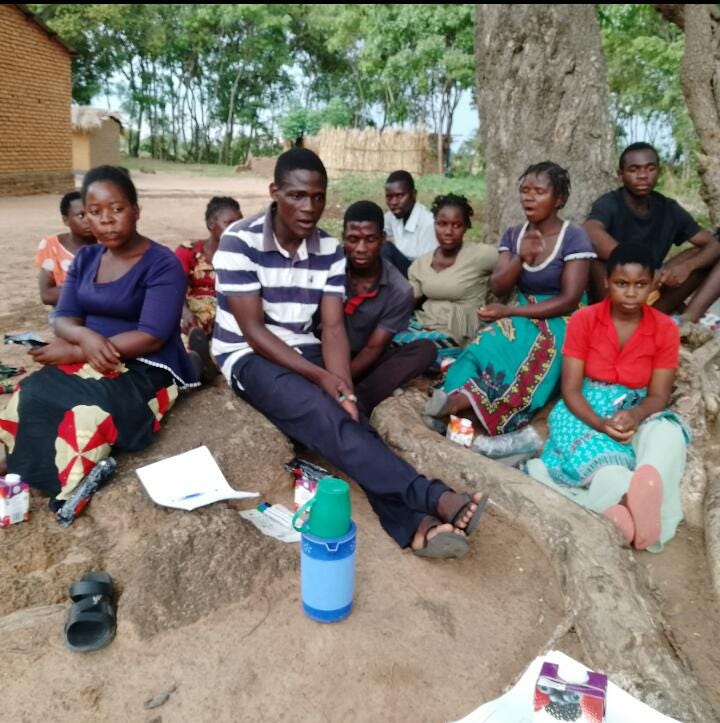Malawian Youth Transform Lives with Bee Farming, Thanks to Good Health Organization Training
Malawian youth in Chidongo Village, Kasungu District, find economic success in beekeeping and honey sales after training from Good Health Organization, writes Benson Kamonjola.
Malawi-A group of youths operating under the Chidongo Youth Club of Chidongo village in the area of Traditional Authority (TA) Kawamba in Kasungu district have found gold in the keeping of bees and selling of honey, a development that has transformed their economic status, thanks to bee farming training they acquired from the Good Health Organization, writes Benson Kamonjola.
One of the beneficiaries, who is also the chairperson for the club, Eletina Banda, said the poverty status among many people in the area, mainly the youths, has changed for the better.
Banda said, "After the training, the organization gave the youths 2 beehives as a start-up capital, but now, with their efforts, they have managed to buy 16 additional beehives."
She said, "From the proceeds, some of the group members have now proceeded to open their own businesses, while others are proceeding with their education with the same profit they get from selling honey."
"This kind of farming has been a game changer among the youth here, for many of us, we were not doing anything to financially sustain ourselves, but now with this farming, we have found a better source of income," disclosed Banda to AfricaBrief.
Madalitso Betha, who is also a member of the club, which started in 2020, and earns a living through beekeeping, said that farming has greatly changed his life economically.
Betha, who now owns 10 personal beehives, said the profit he is getting after harvesting his honey is something he never dreamed of before.
He said, "Compared to other kinds of farming, beekeeping is much easier as it does not require a lot of resources."
"Many people here have ventured into this beekeeping activity as they can now see the fruits we are reaping compared to what they are doing," said Betha.
Concurring with Betha, Group Village Headman Chidongo of the area said the initiative has helped his people in many aspects of their lives.
Chidongo said, "Some youths who were involved in immoral behaviours because of poverty have now changed as they have something to keep them busy."
The traditional leader added that besides reaping financial harvests, people in the area have also realized the importance of taking care of trees in the area, other than cutting them down for charcoal and timber, which is a threat to the environment.
"This kind of farming is environmentally friendly, as it does not destroy the environment in any way, and this has assisted our village to have woodlots, which are benefiting all of us both directly and indirectly," said Chidongo.

Meanwhile, the Department of Forestry in Kasungu has applauded the efforts of the youth through this initiative, saying this is a good approach to forestry conservation.
Acting District Forestry Officer for Kasungu, Charles Lungu, said, "It is exciting that people in the district, led by the youth, are now realizing that there is other economic importance to having woodlots in their area rather than cutting them down for charcoal production."
Lungu said many people are now able to pay fees for their children through the same beekeeping initiative.
"Our team of extension workers on the ground has been engaging the communities on the need to conserve trees, and we are happy that it is working," said Lungu.
While there is good progress on the bee farming initiative, the lack of readily available markets is hampering their efforts to transform their lives economically.
According to the group's chairperson, "The club and many other farmers who are into beekeeping do not have a reliable market, forcing them to sell their honey at lower prices at the district's markets."
She has since said that if they are provided with reliable markets, they can produce a lot of honey, thereby making a lot of profit.



